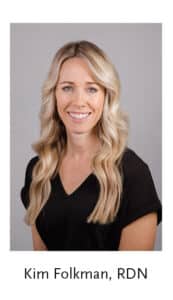
Nutrition Resources
Nutrition Resources is a specialty that treats patients through dietary and nutritional plans for those dealing with certain health problems that can be treated through the help of a dietitian. A registered dietitian is an expert who can assess, diagnose and treat dietary and nutritional problems. A dietitian can give you an accurate, personal nutrition plan to improve health and fight disease. Our dietitian will learn about your health, diet and exercise habits and then help you set goals to achieve a healthier lifestyle.
Our Nutrition Resources Dietitians collaborate with your doctor to assist you in reaching your health goals. They work as a team to monitor your progress and ensure you achieve the best possible results for improved health. They focus on various areas, including Obesity/Weight management, Undesirable weight loss, Diabetes, Gestational diabetes, PCOS, Heart disease (elevated cholesterol, hypertension), Kidney disease, Fatty liver, Food allergies, Celiac disease, IBS and IBD (Chron’s Disease, Ulcerative Colitis), Pediatrics weight management, Pediatric failure to thrive, Sports nutrition, Hashimotos/Hypothyroidism, and Healthy eating/Healthy relationship with food. By working together, they help you make significant improvements in your health status.
WHY IS NUTRITION RESOURCES IMPORTANT?
Nutritional resources are pivotal for enhancing your quality of life. Firstly, access to proper nutrition is essential for overall health and well-being. A balanced diet provides essential nutrients, vitamins, and minerals necessary for bodily functions, energy, and immune system support.
Furthermore, nutritional resources promote healthy growth and development, especially in children and adolescents. Proper nutrition plays a fundamental role in cognitive development, ensuring that individuals reach their full potential. Moreover, good nutrition is closely linked to chronic disease prevention. A diet rich in fruits, vegetables, and whole grains can reduce the risk of conditions such as heart disease, diabetes, and certain cancers.
Additionally, nutrition plays a significant role in managing existing health conditions. For instance, individuals with diabetes can better control their blood sugar levels through proper dietary choices. Furthermore, access to nutritional resources fosters food security, reducing the risk of hunger and malnutrition. It ensures that individuals and families have consistent access to nutritious meals, improving their overall quality of life.
In conclusion, nutritional resources are paramount for physical and mental health, disease prevention, and the overall quality of life. Access to proper nutrition empowers individuals to lead healthier, more fulfilling lives and reduces the burden of preventable health conditions.

WHAT DOES A DIETITIAN DO?
Tanner Clinic dietitians work with patients who have special dietary needs, such as diabetes, heart disease, obesity, eating disorders, high blood pressure, celiac disease, etc. A dietitian is qualified to write meal plans and give guidance to patients with various diseases in order to help them improve their health status. Some people without a disease may request guidance from a dietitian in order to prevent diseases. This is especially true for those who have a family history of the diseases mentioned above.Many people also consult a dietitian for sports nutrition.
Our dietitians work alongside your doctor to help you achieve your health goals. They will track your progress as a team to make sure you are achieving maximum results in order to help you improve your health status. Some of the many areas they focus on include:
- Obesity/Weight management
- Undesirable weight loss
- Diabetes
- Gestational diabetes
- PCOS
- Heart disease (elevated cholesterol, hypertension)
- Kidney disease
- Fatty liver
- Food allergies
- Celiac disease
- IBS and IBD (Chron’s Disease, Ulcerative Colitis)
- Pediatrics weight management
- Pediatric failure to thrive
- Sports nutrition
- Hashimotos/Hypothyroidism
- Healthy eating/Healthy relationship with food
Meet our Dietitians!




WHAT ARE THE QUALIFICATIONS OF A DIETITIAN
A registered dietitian is a person who has a college degree and has qualified for and passed the national exam by The American Dietetic Association. Once they accomplish that they become a registered dietitian nutritionist, or RDN. To maintain a registered status with this national organization they must receive 75 hours of continuing education every five years after the exam has been passed.


WHAT IS EATING DISORDER THERAPY?
Eating Disorder therapy is a process that helps reduce/eliminate health harming behavior, identify the function of health harming eating and exercise behavior, as well as increase personal insight and alternative healthy coping strategies. Tanner Clinic offers therapy with Eating Disorder Specialists who have special training in monitoring needs around disordered eating.
WHAT IS HEALTH HARMING BEHAVIOR?
Examples of health harming behavior and beliefs that may be addressed include restricting food intake, over eating, binge eating, purging behavior, diet pill or laxative abuse, over exercise, obsessive ‘clean’ eating, yo-yo dieting, and negative body image.

Our Providers
Schedule an
Appointment
Tanner Clinic makes it easy to schedule an appointment
You can live chat with an appointment representative, call us over-the-phone for appointment booking, or click below to discover which option is the most convenient for you!







